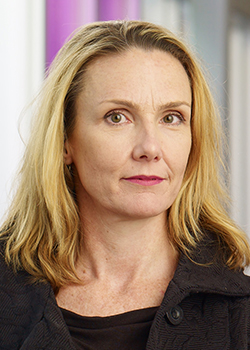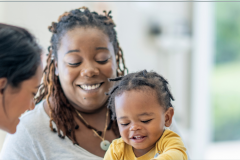A new online survey by researchers at BC Children’s Hospital, the University of British Columbia (UBC) and Simon Fraser University (SFU) aims to better understand how the COVID-19 pandemic has impacted the mental health of children, youth, adults and parents.
“Across B.C., many young people and their families are feeling the added stress, anxiety and depression brought on by COVID-19,” says Sheila Malcolmson, Minister of Mental Health and Addictions. “I’m grateful to BC Children’s Hospital for taking on this important work and listening to the voices of people who are directly affected. The information gathered will help us to plan for the supports and services that people need now and after the pandemic.”

Study co-leads Dr. S. Evelyn Stewart, director of psychiatry research at BC Children’s, and Dr. Hasina Samji, an affiliate investigator with BC Children’s and assistant professor with SFU’s faculty of health sciences, want to gauge how the pandemic affects people’s feelings, thoughts and actions over time, to learn how they manage and what resources they find helpful.
“This research has the potential to transform the lives of children and families across the province who are struggling with unmet mental health-care needs”
says Dr. Stewart, who is also a psychiatry professor in UBC’s faculty of medicine. “We will provide decision-makers with rigorous evidence to guide clinical and policy decisions for this and future pandemics.”
All children and youth over the age of seven are invited to fill in a 20-30-minute online survey about their experiences. Parents are asked to share the experiences of one or all of their children, which takes an additional 20 minutes per child. The researchers are keen to hear directly from young people, whose voices have been missing so far from the conversation. They would also especially like to hear from families and young people from underserved and under-represented communities.
Clinical and community partners at BC Children’s, Ray-Cam Co-operative Centre and the YWCA are among those who have already distributed the survey to families as part of a soft launch.
Jennifer Barkman, a mother of children with special needs, says her kids have exhibited “a lot more feelings and a lot more emotions” without hockey and dance practices. She’s been seeking assistance to make wise decisions about health-care supports for her children.
Barkman has already filled out the survey for caregivers and for each of her kids.
“That has been my callout to our support people, saying, ‘What do you know about what’s going on for families like ours?’” says Barkman. “I want to know how other people are doing and what they’re doing, and to hear the wisdom and tricks and tips and coping strategies from those people – even if it doesn’t help for now, it’s important for the future.”

Dr. Samji, who is also a senior scientist at the BC Centre for Disease Control, says the pandemic has been a marathon, not a sprint, and she knows many children, youth and families are struggling.
“We hope we can make a difference to improve people’s mental well-being now and in the future”
says Dr. Samji. “There is widespread recognition that we need to measure mental well-being at the population level and in groups that may be disproportionately affected by the pandemic. We are grateful for the support of many stakeholders in our work including the Ministry of Health, which has provided seed funding.”
With the official launch of the survey, researchers are hoping for a minimum of 3,000 respondents. The survey is open to everyone, everywhere, with the greatest focus on residents of B.C. and families with children and teens.
Learn more:




